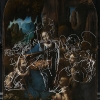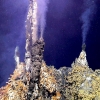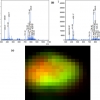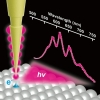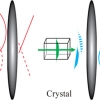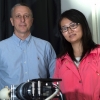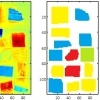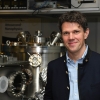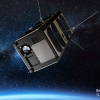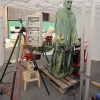News
Imaging News
Shimadzu has opened a branch office in Sweden, which will market Shimadzu’s full range of analytical instrumentation solutions.
XRF mapping, infrared and hyperspectral imaging reveal early designs for Leonardo da Vinci’s The Virgin of the Rocks.
By being resident on-site at a hydrothermal vent for 12 months, InVADER will capture transient events and provide unprecedented spatial and temporal access to a deep ocean hydrothermal system.
The new matrix-assisted ionisation in vacuum (MAIV) technique has been used to generate mass spectrometry images for the first time. The technique’s ability to generate multiply charged ions from peptides and proteins facilitates their identification by tandem mass spectrometry.
A step forward toward achieving nanoscale imaging and spectroscopy with tailored “nanolight”.
Young scientists can apply for laboratory bench space for their own research in “Shimadzu Laboratory World”.
Danish researchers have developed a high-resolution imaging method that can capture mid-infrared spectral images on the order of milliseconds.
X-ray imaging reveal an extinct mouse had brown to reddish fur on its back and sides and had a tiny white tummy.
Researchers at Rice University have developed a new compact, fibre-based imaging spectrometer for remote sensing that can capture 30,000 sampling points each containing more than 60 wavelengths.
The winner of the 2019 Tomas Hirschfeld Award is José Manuel Amigo Rubio. José obtained his PhD (Cum Laude) in Chemistry from the Autonomous University of Barcelona, Spain. Since 2007, he has been employed at the Department of Food Science of the University of Copenhagen, Denmark, and also as Guest Professor of the Federal University of Pernambuco, Brazil, since 2017. José’s research interests include NIR hyperspectral and multispectral image analysis in different research fields including food production, pharmaceutical research, forensic sciences.
The ABS Trust is seeking applications for the Gordon F. Kirkbright bursary award and the new Edward Steers bursary, both open to early career scientists.
2D laser-induced breakdown spectroscopy imaging of shell growth rings is revealing previously hidden data of marine climate change.
Physicists from the University of Basel have developed a new method to examine the elasticity and binding properties of DNA molecules on a surface at extremely low temperatures. With a combination of cryo-force spectroscopy and computer simulations, they were able to show that DNA molecules behave like a chain of small coil springs.
Plastics recycling is complicated by the need to recycle similar plastics together. The presence of flame retardants in plastics also needs to be identified, and NIR hyperspectral imaging can do this.
Matthias Kling is to head a new research group in Ultrafast X-Ray Imaging and Spectroscopy in the Laboratory for Attosecond Physics at the Max Planck Institute of Quantum Optics.
Headwall Photonics has appointed Christian Felsheim as Business Development and OEM Account Manager for the European region.
A Finnish nanosatellite has now reached space equipped with the world’s smallest infrared hyperspectral camera and returned its first images.
Stemmer Imaging has expanded its portfolio and acquired a stake in Perception Park GmbH, the Austrian provider of the Perception System & Studio data processing platform.
Outdoor bronze statues suffer from corrosion by the urban atmosphere. Short wavelength infrared hyperspectral imaging can determine the spatial distribution of corrosion products on the statue, none of which can be recognised by visual observation.
Keynote speakers have been announced for HSI 2018, the 7th international conference on Hyperspectral Imaging & Applications, co-located with Photonex Europe taking place on 10 and 11 October at the Ricoh Arena, Coventry, UK.


